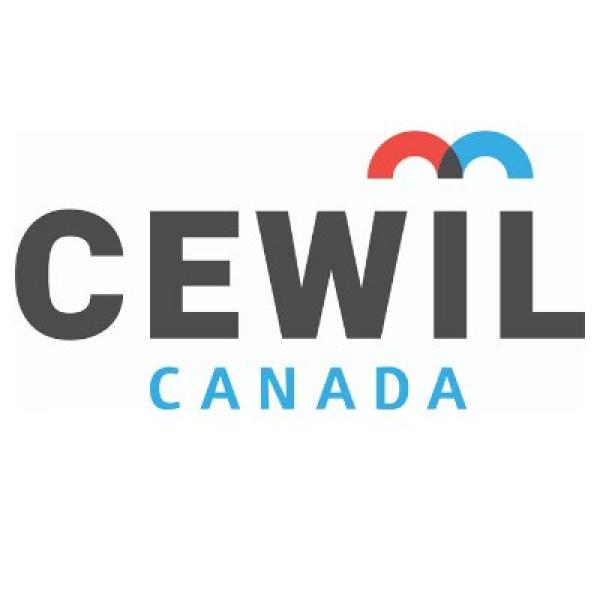Over the past four years, VIU, the Scholarship, Research, and Creative Activity Office and the Centre for Experiential Learning (CEL) has successfully supported over $400,000 in Co-operative Education and Work-Integrated Learning (CEWIL) Canada iHUB funding.
Currently, the Centre for Experiential Learning supports CEWIL iHub Project Funding Grant administration to further enable faculty to increase funding and support to student work-integrated learning (WIL) via this program.
Using our in-house Experience Hub platform and Experiential Learning module, we have created an easy to understand workflow and process. From submitting your iHub project details to the CEL, to completing the final reporting requirements, we are here to support you through the entire process.
The CEWIL iHub provides grant-based funding with a minimum direct benefit to each student of $200 CAD and a maximum cost of $2,000 CAD per student/opportunity to enable and promote curricular WIL focusing primarily on the following four types of WIL:
- Applied research/industry projects
- Entrepreneurial WI
- Field placements
- Service-learning WIL
The iHub supports advancement and innovation of WIL and ensures that WIL projects are delivered with suitable quality and learning standards for VIU students. Through this initiative VIU students will have access to new and innovative work-integrated learning opportunities.
This program is funded in part by the Government of Canada’s Innovative Work-Integrated Learning Initiative (I-WIL).
If you are interested in moving forward with your application for this funding, review the "How to Apply for Funding" section below to get started on the first steps.
Step 1: Prepare your CEWIL iHub Project Funding Grant Application
- Go to the CEWIL iHub Applications and Funding page
- Download the application guide and budget template
- Read the Application Guide to ensure your project complies with CEWIL iHub Project requirements
- Prepare your application using the information below for the additional contact and binding authorities
- Forward your application to your Dean/Department Head for approval to proceed with submission
Step 2: Prepare Documents and Information for Submission to CEL
- Download the CEWIL iHub Project Grant Funding Administration Agreement form on this page
- Read the form and obtain the required signatures on the form
Step 3: Submit Project Information to the CEL
- Login to the Experience Hub
- In the left-hand navigation pane click on the "Experiential Learning" link
- From the overview page click on "Create New+"
- Complete all of the requested information fields and upload required documents
- Submit and wait for notice approval
- While you are waiting to receive your notice of approval from the CEL, you may submit your application to CEWIL Canada as directed in the Application Guide
Step 4: Receive Contract and Begin project
- If your project is approved to proceed by CEWIL, they will send the contract to the listed binding authorities for signing
- Once the contract has been signed by both signing authorities, you and the listed additional contact will receive a copy of the official project contract
- Project opportunity submitted in the Experience Hub Experiential Learning module will be made active by the administrative department
- If you have not yet provided the course code and section for participating students or the list of participating students, you will need to forward this information to the administrative department within the first three weeks of receiving the official contract
- Your project can now begin
For the purposes of iHUB funding, students must meet all the following criteria:
- Registered students in PSE institutions, full time or part time (no age limit)
- Canadian citizens, permanent residents, or persons to whom refugee protection has been conferred under the Immigration and Refugee Protection Act
- Are legally entitled to work in Canada in accordance with the relevant provincial or territorial legislation and regulations
It is important to consider the full cost when calculating the per student costs since no student can receive more than $2,000. Costs above the maximum of $2,000 per student will not be eligible for reimbursement.
Direct Participant Costs
Students must receive a minimum of $200 from this section. Direct Participant Costs should be at least 60% of the overall budget. If you do not meet this requirement, please contact your Regional Associate Director before submitting your application. Examples of eligible expenditures, which can be included in participant costs:
- Direct compensation (wages, stipend) provided to the student(s) in recognition of their participation in the iHub experience. If funds are posted to a student's account, students must be able to request the cash be released and deposited to their personal account, if they choose.
- Financial support to students to assist in participation in iHub experiences (e.g.: costs associated with transportation/travel to the iHub experience, childcare expenses, providing or subsidizing technology costs to allow students to participate in WIL experiences, reimbursement of program fees or fees associated with mandatory police checks, vaccinations, costs students would otherwise have to pay for, etc.)
- Materials, supplies, or resources provided directly to students to extend access to WIL for underrepresented students (e.g.: adaptive technology, disability related supports, specialized programming) or enhance their iHub experience (e.g.: PPE, software, equipment, and supplies that are either consumed by the end of the project or that the student can retain at the end of the project).
Direct Project Costs
These costs must be directly associated with the project.
- Materials, supplies, or resources to be used by students but not provided directly to students to enhance their iHub experience (e.g.: software license shared by the class to allow for virtual experiences/simulations; equipment, materials and supplies either consumed by the end of the project or retained by the institution at the end of the project)
- Program enhancement including skills training content to support students in completing their iHub experiences
- Event costs associated with running iHub qualified events (e.g.: pitch competitions, project showcases, curricular innovation jams/hackathons, etc.) including hospitality expenses within Government of Canada guidelines
- Professional fees associated with delivering the iHub experience including appreciation for community/industry partners involved in supporting the iHub experience
- Staff member to directly support the project associated with delivering the iHUB experience to students. Costs must be directly related to the project and required for the success of the WIL experience. Indirect activities such as evaluation and reporting are ineligible in this category. Faculty is also ineligible.
Optional – Administrative Costs
- Up to 10% of the budget can be used to support administrative activities. This includes overhead costs and costs related to central administrative functions directly related to this project (e.g.: reporting, evaluation, scheduling, issuing stipends, copying, and head office support). This 10% is included in the calculated maximum of $2,000 per student.
- Please note that administrative costs will be reimbursed at 10% of funds spent at the end of the project. Should your project spend less than expected, the allowable administrative funding will be reduced accordingly.
Fall 2024 Projects - September to December
The CEWIL request for proposals (RFP) opens May 1, 2024. Applications must be submitted in the Experience Hub no later than June 11 to allow for review and approval prior to submission to CEWIL.
Once the VIU approvals process as described in the "How to Apply" section above is completed, applications must be submitted using CEWIL's Good Grants Platform.
Please go to the CEWIL iHub Application and Funding page to access the application guide, budget template and Adjudication rubric.
Ask Us Anything - Weekly Open Office Hours, Every Wednesday and Thursday
Wednesdays - until the RFP closes
- English: 12:30 to 1:30 pm (Eastern Time) - Join the meeting
- French: 1:30 to 2:30 pm (Eastern Time) - Join the meeting
Thursdays - ongoing
- English: 12:30 to 1:30 pm (Eastern Time) - Join the meeting
- French: 1:30 to 2:30 pm (Eastern Time) - Join the meeting
The following information must be used in your application to CEWIL:
Additional Contact
Tawnya Hoff
Systems Administrator, Experiential Learning
Tawnya.Hoff@viu.ca
Phone: 250.740.6639
Binding Authorities (Both must be added)
Department Binding Authority
Dean or department head of project lead's department with signing authority for the department work orders
Additional Binding Authority
Irlanda Price
AVP, Student Affairs
Irlanda.Price@viu.ca
Phone: 250.740.6412
The administration agreement contains the following terms and conditions. Please download the document, fill required fields in full and obtain required signatures prior to upload in the Experience Hub Experiential Learning Module.
Roles and Responsibilities
Role of Project Lead
The Project Lead will:
- Create and submit CEWIL Canada iHub Project Funding Grant proposal to CEWIL Canada for review and approval.
- Submit the iHub project information and required documents in the VIU Experience Hub Experiential Learning module.
- Carry out the CEWIL iHub Project as outlined in the approved CEWIL iHub contract.
- Notify students of participation in CEWIL iHub Project and advise them of participants requirements and responsibilities as outlined in the CEWIL iHub contract and any VIU policies or procedures for participation in the project or for undertaking a work-integrated learning placement.
- Notify industry partners of participation in CEWIL iHub Project and advise them of requirements and responsibilities of host organizations as outlined in the CEWIL iHub contract and any VIU policy(s) for hosting work-integrated learning students.[DJ1] [TH2]
- Oversee participating students.
- Direct grant expenditures.
- Provide information to the Administrative Department as required for them to carry out their administrative duties as outlined in this agreement.
- Complete the CEWIL Canada iHub final reporting documents as required to fulfill contract reporting requirements including:
- Final Project Activity Report
- Final Project Attestation
Role of Department Binding Authority
The Department Binding Authority will:
- Review and approve the Project Leads CEWIL iHub Project Funding Grant proposal prior to submission to CEWIL Canada for review and approval.
- Read the entirety of the CEWIL Canada Application Guide.
- Once received, read the entirety of the CEWIL Canada iHub Project Grant Funding Contract.
- Sign the CEWIL iHub Canada Contract as a binding authority.
- Ensure that the Project Lead is adhering to the CEWIL Canada iHub Contract terms and conditions.
- Initiate reimbursements to the Administrative Departments work order for expenditures not covered by CEWIL iHub Project Funding Grant.
Role of Student Affairs Binding Authority
The Student Affairs Binding Authority will:
- Read the entirety of the CEWIL Canada iHub Project Grant Funding Contract.
- Sign the CEWIL iHub Canada Contract as a binding authority.
Role of Administrative Department
The Administrative Department will:
- Oversee enrollment of student participants in the Experiential Learning module of Experience Hub for the purposes of collecting student data information required to fulfill final reporting requirements.
- Oversee collection of student demographic data required to fulfill final reporting requirements.
- Oversee tracking of budget expenditures and reporting out to the Project Lead and Department Binding Authority and appointed purchaser.
- Provide information to the Project Lead regarding student participants completion of student data forms and project information required for Project Lead to complete their final reports as required by CEWIL Canada.
- Oversee preparation of final reporting documents including:
- Budget report of actual spending and partner contribution confirmation
- Detailed work order transaction report
- Student data report
- Oversee submission of final reporting documents.
Project Administration Agreement Details
Submission of Opportunity Posting
While awaiting approval from CEWIL Canada, the Project Lead must complete and submit an opportunity posting in the Experience Hub Experiential Learning module under the iHub Experience type.
This submission must include the following required documents:
- Copy of the original project proposal submitted to CEWIL
- Copy of the original budget submitted to CEWIL
- Signed VIU CEWIL iHub Project Funding Grant Administration Agreement
- List of all industry partners (employers) with their GST numbers
- List of all student participants, if available. If not available at the time of submission, a date upon which it will be available must be provided.
Binding Authorities
Each project will require two binding authorities:
- One in the Project Leads department with WO signing authority. Referred to as the Department Binding Authority.
- One in Student Affairs. Referred to the Primary Binding Authority.
Administration Agreement Terms
The Project Lead will agree to the following administration conditions:
- The Project Lead has read the entirety of the CEWIL Canada Application Guide and has a full understanding of the funding terms and conditions.
- Once received, the Project Lead will read the entirety of the CEWIL Canada iHub Contract.
- The Project Lead will confirm that participating students meet all eligibility requirements as outlined in the CEWIL iHub Application Guide.
- The Project Lead will provide a complete list of all student participant names and student IDs within the first three weeks following receipt of the signed CEWIL Canada iHub Contract.
- Industry partners/employers meet all requirements as outlined in the CEWIL iHub Application Guide.
- The Project Lead agrees to provide a complete list of industry partners/employers, associated contact information and organization GST numbers as required to fulfill CEWIL Canada iHub final reporting requirements.
- The Project Lead agrees to allow the Administrative Department to contact participating students and industry partners/employers for grant-related reasons/communications.
- The Project Lead will adhere to project timelines and deadlines as provided by the VIU CEWIL Administrative Department.
- The Project Lead will agree that due to internal processing procedures, VIU project timelines and deadlines will supersede CEWIL Canada iHub timelines/deadlines.
Expenditures and Grant Disbursal Terms
The Department Binding Authority and the Project Lead will agree to the following expenditure and grant disbursal conditions:
- Grant money expenditures will adhere to requirements as outline in the CEWIL iHub Application Guide and submitted budget approved by CEWIL Canada.
- Grant money will be held in the Administrative Departments CEWIL iHub work order.
- All grant expenditures and grant disbursals will be undertaken by an appointed individual in the Project Lead’s department.
- All grant expenditures and grant disbursals will be reviewed and approved by the Administrative Department CEWIL iHub work order signing authority.
- All University purchasing card expenditures must have a receipt. Purchasing card expenditures without a receipt will be rejected.
- Expenditures that do not adhere to the approved CEWIL iHub Budget will not be approved.
- Expenditure overages, ineligible expenditures, or past deadline expenditures not covered by CEWIL iHub Project Grant will be reimbursed to the Administrative Departments work order by the Department Binding Authority’s work order of choice over which they have signing authority.
- Changes to budget expenditure types must be pre-approved by CEWIL Canada prior to making the expenditure.
Download Administration Agreement
Project Requirement Overview
Please take note of the following iHub Project requirements as they have changed this year.
- All iHUB experiences must provide some direct student benefit
All project proposals require a Canadian community or industry partner.
- Partners are required to contribute a minimum 20% of the total cost in cash or in kind (e.g., supervision, mentoring, equipment, hosting events, etc.)
- VIU service units can not serve as industry partners
- Government bodies, agencies or government funded institutions may not serve as industry partners
- All project proposals should indicate how technology will be utilized to support the WIL experience and priority will be given to projects that leverage innovative technologies or existing technologies in innovative ways.
- To the greatest extent possible, applicants are encouraged to indicate how their project supports the participation of under-represented students.
Projects must address one or more of the following key outcomes:
- Expanding access to WIL opportunities, particularly for under-represented students
- Removing barriers for students to participate in work-integrated learning
- Leveraging technology to enhance programming or extend access, including the use of technology to support virtual or remote WIL experiences
- Innovating work-integrated learning through new partnerships and/or new models for curricular WIL



